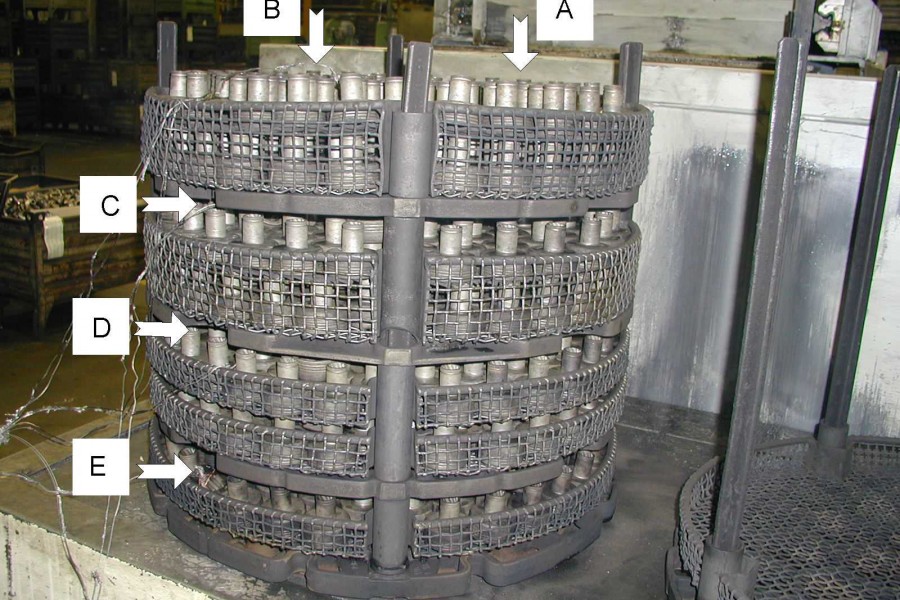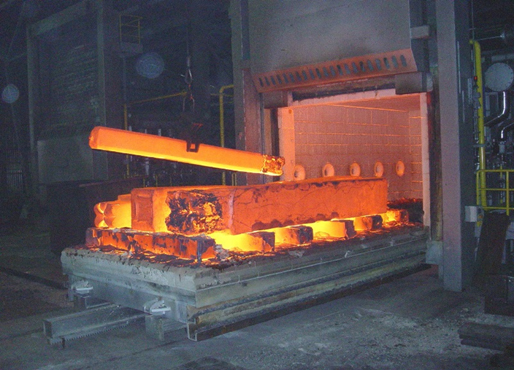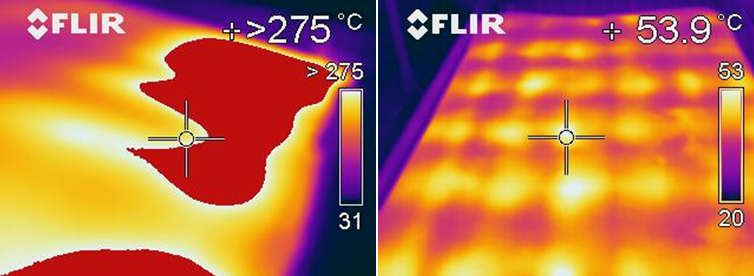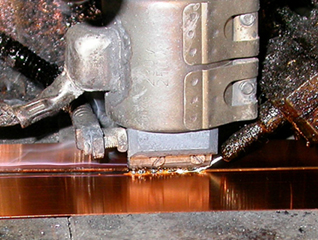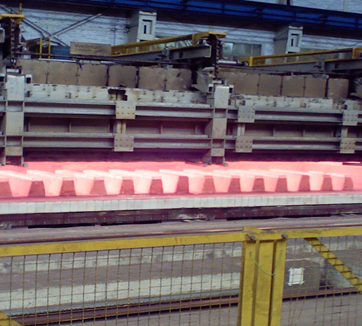Chair of Heat Engineering
HEAD OF CHAIR
Prof. Borut Kosec, DrSc
Tel: +386 1 2000 410
e-mail: borut.kosec@ntf.uni-lj.si
CHAIR ASSOCIATES
Assoc. prof. Blaž Karpe, DrSc
Tel: +386 1 2000 413
e-mail: blaz.karpe@ntf.uni-lj.si
assist. Lovro Cigić, M. Eng. in Materials Engineering
Tel: 01 2000 415
e-mail: lovro.cigic@ntf.uni-lj.si
tech. assist. Sandra Perič, B. Eng. in Materials Engineering
Tel: 01 2000 416
e-mail: sandra.peric@ntf.uni-lj.si
Chair Presentation
The Chair of Heat Engineering deals with engineering challenges in connection with the optimization of industrial processes, with a particular focus on heating and cooling quality, energy efficiency and environmental protection. Particular attention is paid to high-temperature processes in which various types of heat and mass transfer are used. The research activities carried out in the Chair’s laboratories include temperature measurement and control, the determination of the thermal properties of materials and the investigation of solid, liquid and gaseous fuels.
In addition to research, the chair provides courses for Bachelor’s, Master’s and PhD study programmes in the field of material and metallurgical science. These include: Heat and mass transfer, Thermo-engineering calculations, Ecology, Computer practicals, Practicals in measurement and regulations, Metallurgical and process furnaces.
Research Activities
The diversity and scope of the research carried out in the chair is reflected in over 300 reports and numerous presentations in the form of lectures, posters and scientific articles at national and international conferences. The department has gained a good reputation in the diagnosis of the operating condition of industrial furnaces and in measurement and control technology. Through its specialized work, it has contributed to more energy-efficient and environmentally friendly operation and improved product quality. In the field of measurement technology, expert measurements have been carried out on furnaces for demanding customers such as Germanischer Lloyd and Lloyd’s Register. Extensive experience has also been gained in emission measurements in metallurgical plants, which play an important role in complying with legislation and reducing environmental impact, particularly following the adoption of clean air regulations.
The department has successfully applied a method for developing and testing steel heating models that enables real-time process simulation. For this purpose, a system for automatic signal acquisition from sensors was developed, which transmits the data via serial communication to a personal computer, where a simulation programme processes the data in real time and uses it within a process model to calculate and display variables that cannot be measured directly under industrial conditions. This system was implemented at ACRONI d.o.o. where, when upgrading the control system for a pusher furnace with a programmable logic controller (PLC), the data acquisition was adapted to run via Ethernet communication between the PLC and the production computer.
The department’s current research focuses on the development and optimisation of elastocaloric alloys with the aim of producing advanced materials for energy-efficient heating and cooling technologies.
Laboratory for Measurements
The lab supports both hands-on coursework and research activities, with a focus on measuring the thermal properties of materials, temperature fluctuations, in-situ electrical resistivity measurements, and particle emission analysis. Students gain hands-on experience in measuring temperature, flow and pressure using thermocouples, optical pyrometers, rotameters and gas meters. They also learn calibration procedures for measuring devices and how to interpret the collected data.
Equipment
- Hot Disk TPS 2200 thermal constants analyzer
- Agilent 34970A Data Logger
- Temperature sensors (TC, RTD, NTC, PTC)
- SKC Limited personal dust particle emission sampler
- SIGMA flue gas analyzer (O₂, CO₂, CO, NOₓ, …)
- Radiation pyrometer
- KERN ABS-N analytical balance
- Manual rolling mill Durston
Laboratory for Fuels
The laboratory is dedicated to research in the field of fuel properties, combustion and efficient energy utilisation. It also includes analysing the composition of flue gases produced during combustion processes. In the practical sessions, students learn to determine the calorific value of solid and liquid fuels, carry out a proximate analysis and measure the physical properties of liquid fuels such as viscosity, density, flash point and ignition point.
Equipment
- IKA Calorimeter 200 C for the analysis of solid and liquid fuels
- Höppler viscometer Thermo Scientific HAAKE
- Engler viscometer
- Mohr balance
- Pensky-Martens flash point tester
- Marcusson flash point tester
- BR-14ST vacuum tube furnace (T ≤ 1400 °C)
- Chamber furnace (T ≤ 1200 °C)
- Vertical oval furnace (T ≤ 1000 °C)
Simulation Laboratory
The laboratory supports the simulation and numerical analysis of thermotechnical processes, such as fuel combustion and heat transfer. It consists of several computers connected to the network of the University of Ljubljana and enables the use of simulation software and the development of own algorithms based on literature and findings from research in the process industry.
List of International and National Research Projects
- CASE LCA NETWORK (1 November 2012 – present)
- CEEPUS III Network CIII-PL-0007 – Contemporary Manufacturing and Measuring Technologies in Quality Management Systems (1 January 2017 – present)
- CEEPUS III Network CIII-PL-1705-01-2223 INTEGRATION – Development, Education and Practical Improvement in the Field of Multifaceted Problems of Designing and Manufacturing Products for Industrial and Biomedical Purposes (1 March 2023 – present)
- BI-RS/23-25-035 – Cavitation Erosion Testing of Creep-Resistant Martensitic Steels for Advanced Application (1 July 2023 – 30 June 2025)
- BI-RBA/23-25-039 – Thermal Properties of Dental Materials (1 July 2023 – 30 June 2025)
- ANADEP – Analysis of Composition, Geometry, and Size of Dust Particles in Dental Laboratories, funded under the internal call Student Projects for Sustainable Development 2023
